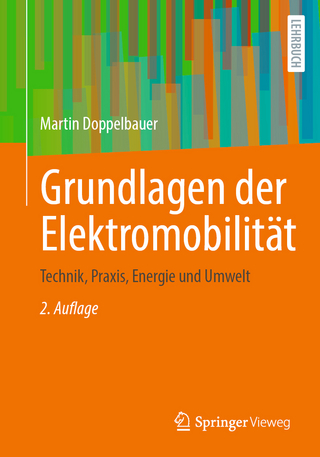
Changing Carbon Cycle
Springer-Verlag New York Inc.
978-0-387-96211-5 (ISBN)
- Titel ist leider vergriffen;
keine Neuauflage - Artikel merken
Yet, much more must be accomplished; more irreducible and stubborn facts are needed to reduce the uncertainties so that we can improve our knowledge base. Uncertainty can never be reduced to zero. However, with a much improved knowledge base, we will be able to learn, under- stand, and be in a position to make decisions.
1 The Global Atmospheric CO2 Distribution 1968-1983: Interpretation of the Results of the NOAA/GMCC Measurement Program.- 2 Simulating the Atmospheric Carbon Dioxide Distribution with a Three-Dimensional Tracer Model.- 3 Presentation of the 20th Century Atmospheric CO2 Record in Smithsonian Spectrographic Plates.- 4 Atmospheric CO2 Record from Direct Chemical Measurements During the 19th Century.- 5 Review of the History of Atmospheric CO2 Recorded in Ice Cores.- 6 Ancient Carbon Cycle Changes Derived from Tree-Ring 13C and 14C.- 7 Interpretation of the Northern Hemispheric Record of 13C/12C Trends of Atmospheric CO2 in Tree Rings.- 8 Revised Estimates of Atmospheric CO2 Variations Based on the Tree-Ring 13C Record.- 9 Carbon Isotope Measurements in Baseline Air, Forest Canopy Air, Plants.- 10 Estimating Changes in the Carbon Content of Terrestrial Ecosystems from Historical Data.- 11 Changes in Soil Carbon Storage and Associated Properties with Disturbance and Recovery.- 12 Continental and Global Scale Remote Sensing of Land Cover.- 13 Changes in the Area of Forests in Rondonia, Amazon Basin, Measured by Satellite Imagery.- 14 One-Dimensional and Two-Dimensional Ocean Models for Predicting the Distribution of CO2 Between the Ocean and the Atmosphere.- 15 Three-Dimensional Ocean Models for Predicting the Distribution of CO2 Between the Ocean and the Atmosphere.- 16 Calibrating Ocean Models by the Constrained Inverse Method.- 17 Chemical and Biological Processes in CO2-Ocean Models.- 18 Measurements of Total Carbon Dioxide and Alkalinity in the North Atlantic Ocean in 1981.- 19 Geologic Analogs: Their Value and Limitations in Carbon Dioxide Research.- 20 Requirements for a Satisfactory Model of the Global Carbon Cycle and Current Status of Modeling Efforts.- 21 The Use of Observations in Calibrating and Validating Carbon Cycle Methods.- 22 Analysis of the Seasonal and Geographical Patterns of Atmospheric CO2 Distributions with a Three-Dimensional Tracer Model.- 23 Fossil Fuel Combustion: Recent Amounts, Patterns, and Trends of CO2.- 24 Distribution and Quantitative Assessment of World Crude-Oil Reserves and Resources.- 25 Long-Term Energy Projections and Novel Energy Systems.- 26 Atmospheric CO2 Projections with Globally Averaged Carbon Cycle Models.- 27 Possible Changes in Future Use of Fossil Fuels to Limit Environmental Effects.
| Zusatzinfo | 57 black & white illustrations, biography |
|---|---|
| Verlagsort | New York, NY |
| Sprache | englisch |
| Maße | 165 x 248 mm |
| Gewicht | 1025 g |
| Einbandart | gebunden |
| Themenwelt | Naturwissenschaften ► Biologie ► Ökologie / Naturschutz |
| Naturwissenschaften ► Chemie | |
| Naturwissenschaften ► Geowissenschaften ► Geologie | |
| Naturwissenschaften ► Geowissenschaften ► Meteorologie / Klimatologie | |
| ISBN-10 | 0-387-96211-5 / 0387962115 |
| ISBN-13 | 978-0-387-96211-5 / 9780387962115 |
| Zustand | Neuware |
| Informationen gemäß Produktsicherheitsverordnung (GPSR) | |
| Haben Sie eine Frage zum Produkt? |
aus dem Bereich


